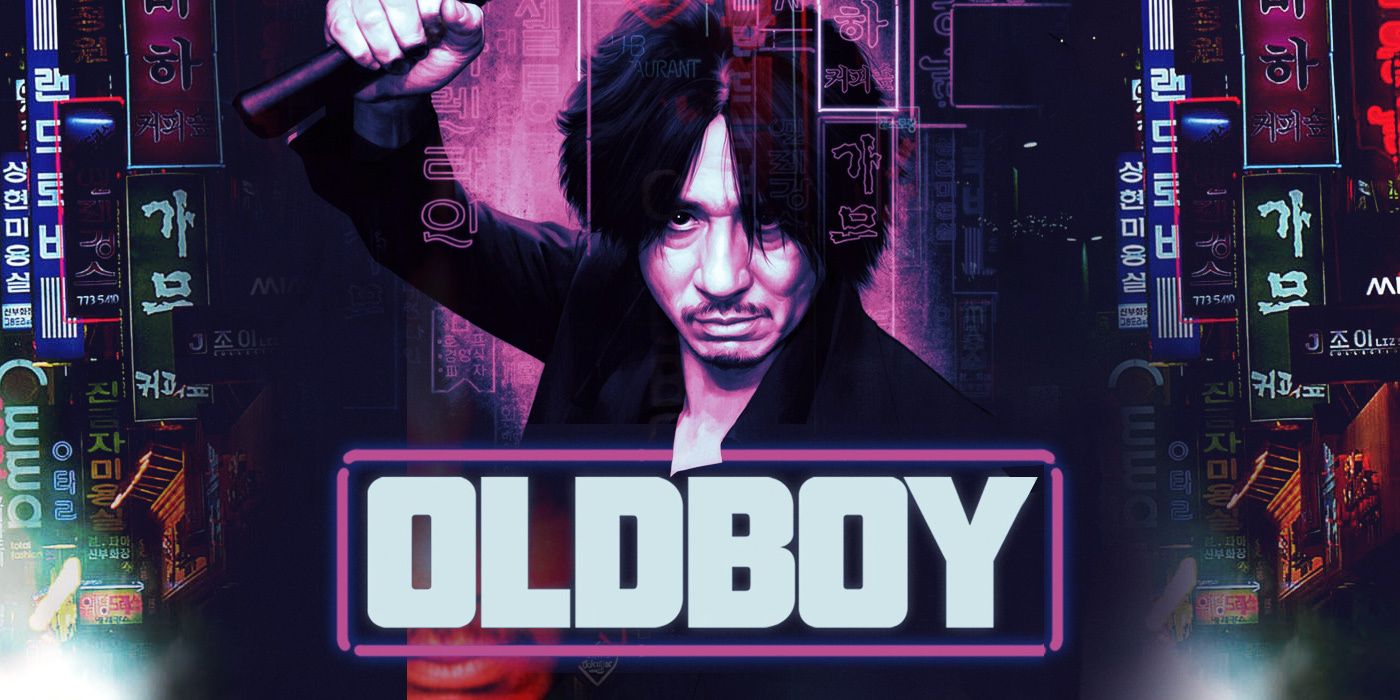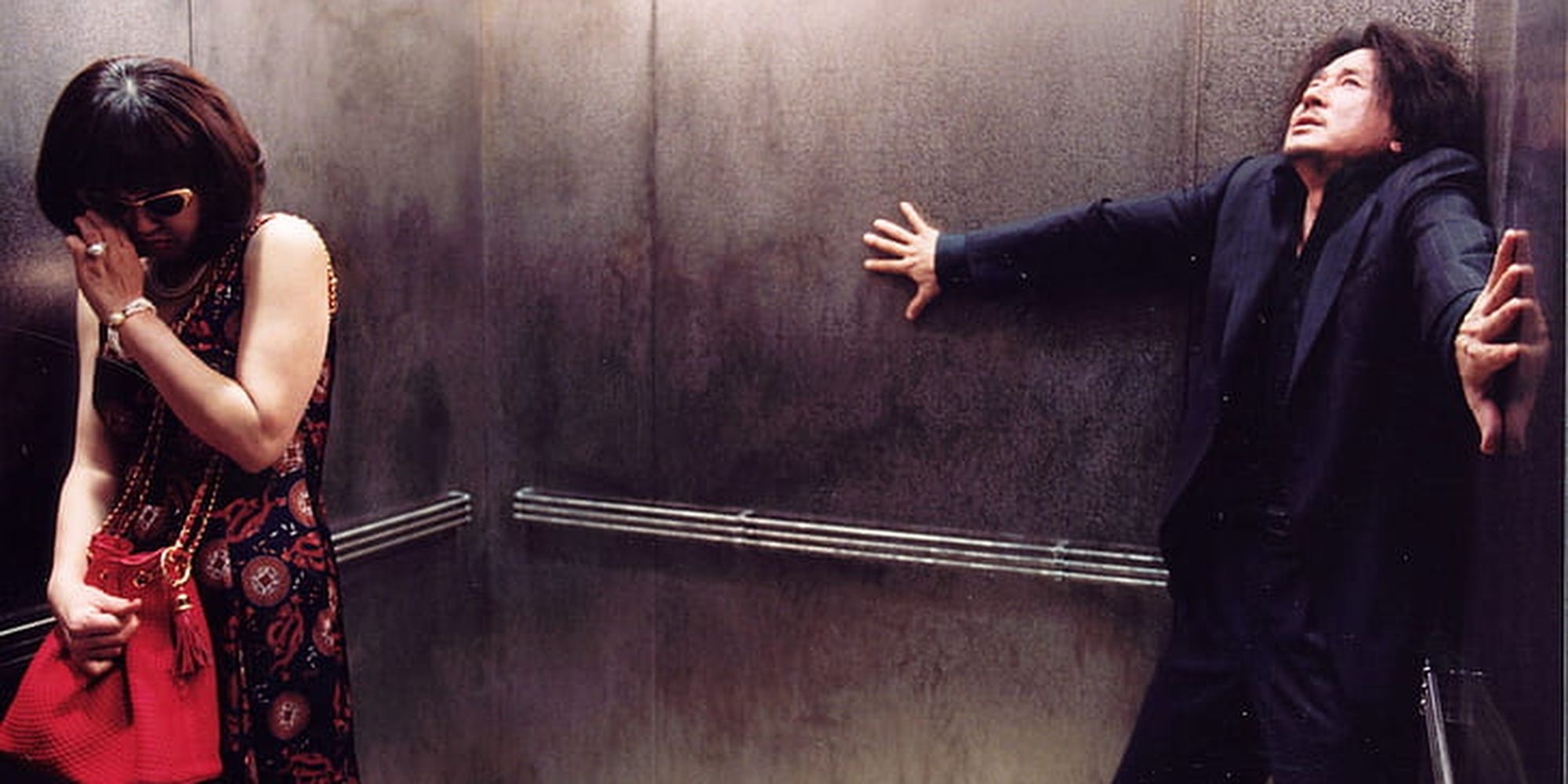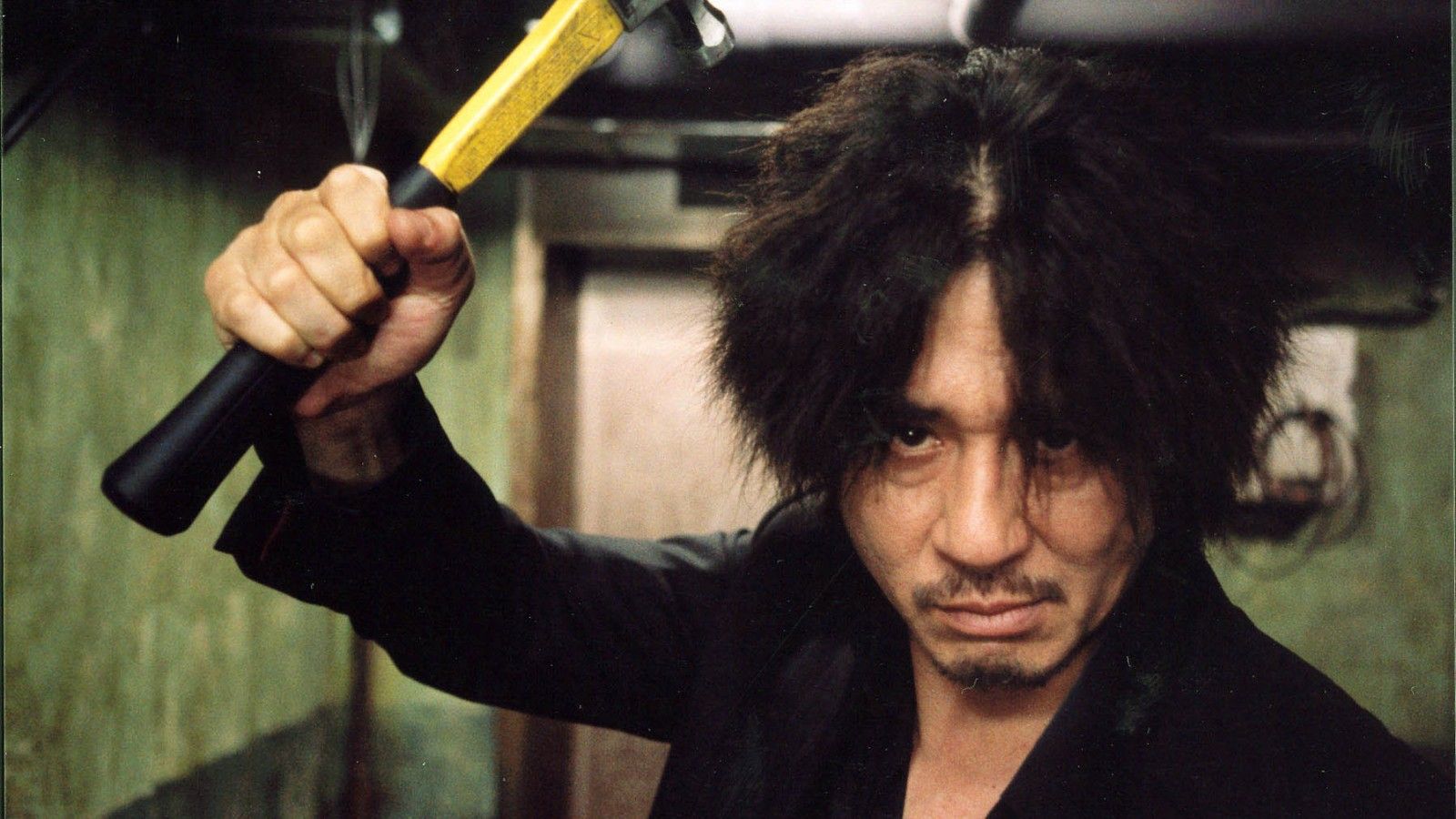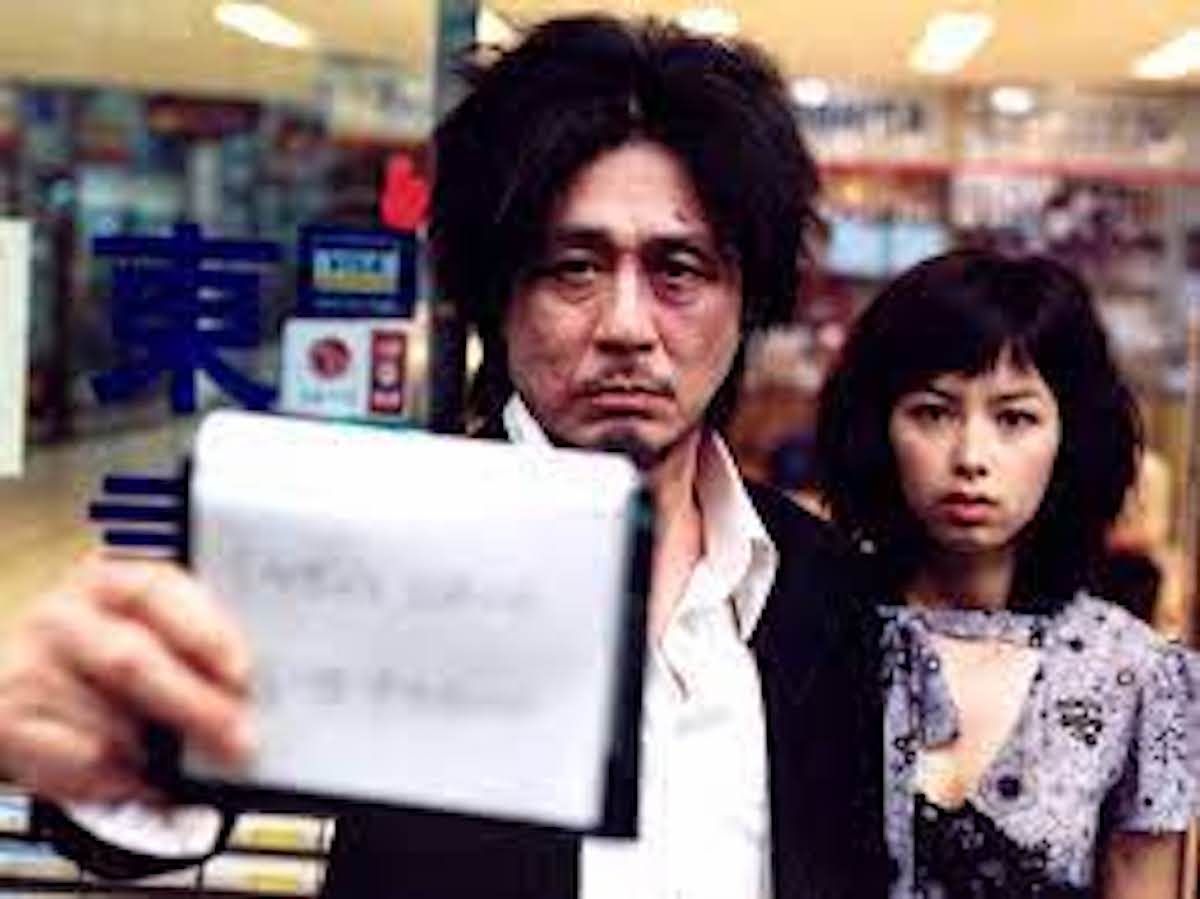As humans, we are prone to a plethora of emotions throughout our lives. It is both one of our best strengths and greatest weaknesses, as while rampant emotions can lead us to doing things that we may later regret, without them, we lose a huge chunk of what makes us human in the first place. Sometimes these emotions can mix in a volatile way that can cause us to seek revenge over one another. This concept alone isn't one that is unfamiliar to many, as I am sure we have all had our moments of small, petty revenge for things that would be seen upon looking back as not necessarily being worth getting revenge for in the first place. However, for the protagonist and antagonist of 2003's Oldboy, revenge could not be more serious of a topic for them. It is the single most important goal that fuels all of their actions, and it is the centerpiece upon which the entire film is built around. In fact, the film itself is part of a trilogy of films titled The Vengeance Trilogy that all center around the theme of revenge. It was the second film, coming after Sympathy for Mr. Vengeance and before Lady Vengeance. It should be noted that these films are linked thematically and not narratively. Oldboy was also remade in 2013 by director Spike Lee, though it was seen as a mediocre reinterpretation that failed to add anything substantial to the narrative. The 2003 film however did such a good job at presenting the theme of revenge that it has won a plethora of awards over its lifetime, such as the Grand Prix at the Cannes Film Festival or how it won the Best Film at both the Grand Bell Awards and the Korean Film Awards.
To give some context surrounding the climactic ending of the film, Oldboy is a South Korean film directed by Park Chan-Wook that focuses on the journey of a man named Oh Dae-su (Choi Min-sik) after being locked away in a mysterious prison for fifteen years. After so long with no real human interaction, Oh Dae-su wants to find out whom he wronged to deserve the punishment he just endured, and he wants to make them pay for the torture they just placed unto him. Thus, the cycle of revenge moves into full effect. The protagonist wronged someone, they got revenge on him, and now he wants revenge on them. It is a cycle that will continue to spiral as each person tries to come out on top. Unfortunately for Oh Dae-su, the revenge for his actions is far from over like he thinks.
Throughout the duration of the film we find out that the person targeting Oh Dae-su is a man by the name of Lee Woo-jin (Yoo Ji-tae) who is getting revenge on him for causing the death of his sister. When they were both still kids in high school, Oh Dae-su caught Lee Woo-jin committing an act of incest with his sister Lee Soo-ah. Oh Dae-su told his friend No Joo-hwan (Ji Dae-han) who then spread the rumors across the school. These rumors combined with the "phantom pregnancy" that Lee Woo-jin says his sister developed lead to her eventual suicide. It is intentionally left vague if the phantom pregnancy was what happened or if that is just what Lee Woo-jin said to hide himself from his past actions and the possibility of actually causing his sister to become pregnant.
The real act of revenge wasn't just to lock Oh Dae-su away for fifteen years, but it was actually to make him feel the same levels of pain as Lee Woo-jin had gone through. As a result, the real revenge plot was to subliminally get Oh Dae-su to fall in love with his own daughter, who was only four when he disappeared. To get this to happen, Lee Woo-jin had Oh Dae-su's wife murdered and his daughter Mi-do (Kang Hye-jung) hypnotized to ensure that the two would fall for one another once Oh Dae-su was released. In the climactic scene at Lee Woo-jin's penthouse, he is threatening to tell Mi-do the truth about how she really had sex with her own father just after Oh Dae-su had learned it for himself. Obviously not wanting to permanently scar his daughter, Oh Dae-su begs for Lee Woo-jin not to tell her, going so far as to cut his own tongue out as a gesture of what he would do to make sure she never learned the truth. Seeing the lengths he would go to, Lee Woo-jin decides to not have Mi-do learn the truth, instead leaving Oh Dae-su with a remote that supposedly would cause the pacemaker that Lee Woo-jin had installed to kill himself if Oh Dae-su tried to torture him. Of course, Oh Dae-su reaches for the remote, but upon pressing it he finds out that the remote actually turns on a loudspeaker that plays audio of him and Mi-do having sex. Crushed, humiliated, and in unimaginable pain, Oh Dae-su lies on the floor of the penthouse broken as Lee Woo-jin descends the elevator. Having fulfilled his revenge plot that was so long in the making, Lee Woo-jin takes his own life feeling that he is now finally satisfied.
Unsure of what to do, Oh Dae-su finds the hypnotist that tranced him earlier in the film and convinces her to make him forget the secret, so that he can go on without living in disgust with himself. Again, the movie makes it unclear if Oh Dae-su actually found the hypnotist or if it is just a way to project his own attempts to block the memory, as the next scene shows her nowhere to be found and instead, he is laying in the snow where Mi-do finds him and confesses his love for him. The two embrace, and there's a conflicted expression on Oh Dae-su's face that makes one wonder if he will ever truly forget what the truth is.
Oldboy is a movie that doesn't hold back with its depictions of the taboo events that can unfold in our lives and the ever-growing thirst to get revenge on those who have wronged us. While the ending is portrayed as being potentially happy, it is far overshadowed by the truth that the most positive ending for these two is to never know that they are actually related. It is a happy ending only if you have the willpower to ignore the truth of the situation and allow Oh Dae-su and Mi-do to live in a lie that has been meticulously crafted for them. This raises the long asked philosophical question: is it better to live in a happy lie or to live in a sad reality? It's a question that, while seemingly easy to answer on the surface, provides some strong conflicting emotions when presented more directly into our lives. It is almost always better to face the truth, but that is easier said than done when the truth brings you so much pain. For Oh Dae-su, a man that was just utterly demolished mentally, physically and emotionally, he did not have the strength to endure his life with the knowledge of the truth.
The ending of Oldboy gives a false sense of happiness and closure to viewers. It triggers what should normally be a happy ending where the protagonist gets with their love interest, which in turn makes viewers all the more unsettled when it sinks in that they are being emotionally manipulated to be happy for this incestuous relationship. The protagonist does not win in this film, he only does what he thinks is necessary to dampen the pain of his loss, and through that we are left to digest the impact that revenge has had on his life. The film does not necessarily give a direct message to be learned, except perhaps to be wary of how revenge can completely ruin another person's life as well as your own. Perhaps it is an attempt to make us show more empathy towards those around us, and to not be so rash as to act out on those emotions that would demand for us to seek revenge. After all, neither of the characters attempting to get revenge in the film have good endings. Lee Woo-jin shoots himself after convincing himself that revenge was all he wanted out of life, thus preventing him from ever moving on and forever locking his life to the past, and Oh Dae-su tries to make himself stay with his daughter in an attempt to make himself ignorant of the painful truth. The entire point of revenge is that it is supposed to bring a level of satisfaction towards those who achieve it, however Oldboy makes it clear that the satisfaction brought out from revenge is not a feeling worth chasing.




